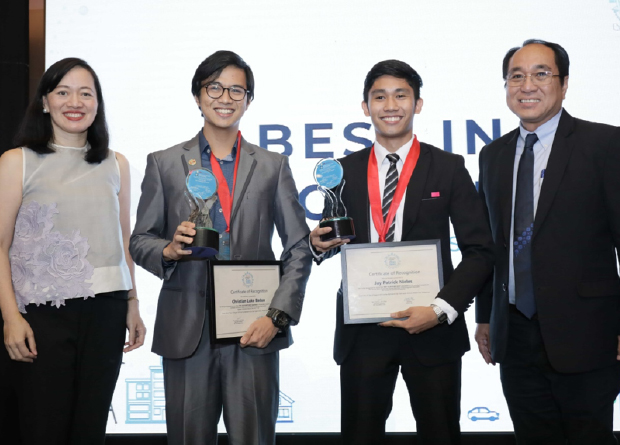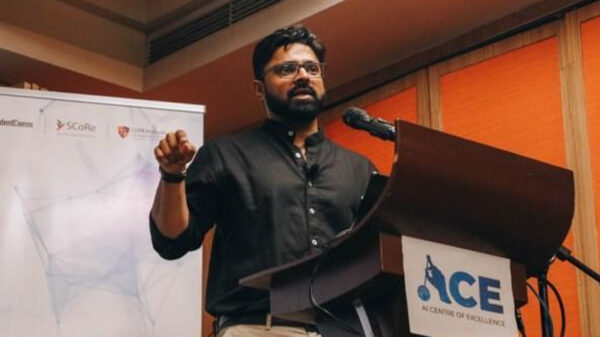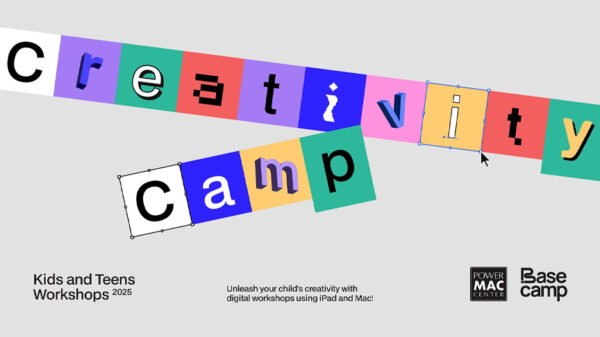BPI Foundation, together with the Department of Science and Technology (DOST), awarded thirty outstanding college students who developed scientific researches and innovations at the 30th BPI-DOST Science Awards.
This year’s awards focused on the theme “Moving the Nation towards Sustainable Development through Science & Innovation.” The BPI-DOST Science Awards invited students from all over the country to contribute researches and innovations supporting global sustainable development goals.
Based on their academic performance, commitment to research, research problem, application and relevance, and scientific-technical soundness, it shortlisted 30 to receive Php 10,000 and a medal. It identified the top ten most promising entries to get an additional Php 15,000 and a certificate. Two were named “Best in Innovation” and received an additional Php 20,000 and a trophy. The Project of the Year Award was awarded with an additional Php 25,000 and a trophy.
The two-day celebration featured a workshop from Professor Matthew Escobido of the Master of Science in Innovation and Business program at the Asian Institute of Management (AIM) and talks from Outstanding Science Alumni Awardees Dr. Leopold Ilag from Stockholm University, Dr. Luis Sison from DOST-UP Enterprise Center for Technopreneurship, and Engr. Maria Leah Flor De Castro from Ateneo de Davao University.
“Through these awards, we hope to inspire more Filipino students to pursue scientific researches and innovations that contribute to building a stronger and more sustainable future for all of us,” said Maricris San Diego, Executive Director of BPI Foundation. “We believe that scientific advancements that start from addressing local realities and concerns have amazing potential to make an impact globally and uplift the human condition.”
Here is the list of awardees:
Project of the Year:
Jay Patrick Nieles, BS Electronics Engineering from the University of Santo Tomas: his innovation helps locked-in syndrome patients communicate through a brain-computer typing interface that uses visual imagination of shapes and symbols
Best in Innovation:
- Jay Patrick Nieles, BS Electronics Engineering from the University of Santo Tomas: his innovation helps locked-in syndrome patients communicate through a brain-computer typing interface that uses visual imagination of shapes and symbols.
- Christian Badua, BS Biology from UP Manila: he investigated how probiotics, specifically lactic acid bacteria, can be used in the treatment of colorectal cancer, one of the top causes of mortality in the Philippines.
People’s Choice Award:
Jaime Garbriel Trazo, BS Chemistry from Ateneo de Manila University: he studied how agricultural by-products can be harnessed in making printed electronic applications as components for technological devices.
Top Ten:
- Alex Retona, BS Electrical and Communications Engineering from Ateneo de Manila University: he designed a speech assistive system integrated into Android devices for individuals who are suffering from incomplete locked-in syndrome (ILS). These are speech-impaired and completely paralyzed, often as a result of stroke, but still have limited movements such as finger gestures and blinking.
- Chester Tantoco, BS Engineering from UP Los Banos: he pursued the development of bioplastics from common agricultural residues, particularly corn stover.
- Christian Badua, BS Biology from UP Manila: he investigated how probiotics, specifically lactic acid bacteria, can be used in the treatment of colorectal cancer, one of the top causes of mortality in the Philippines.
- Dewey Sia, BS Computer Science from Ateneo de Davao: he investigated how computers can improve their capabilities for visual speech communication for better accessibility, especially for the deaf and mute.
- Ryan Suplito, BS Engineering from UP Los Banos: he studied how sugarcane bagasse can be used as an alternative to petroleum-based plastics.
- Jay Patrick Nieles, BS Electronics Engineering from the University of Santo Tomas: his innovation helps locked-in syndrome patients communicate through a brain-computer typing interface that uses visual imagination of shapes and symbols.
- Jeremie Pearl Cruz, BS Chemistry from UP Diliman: she sought to understand how computer-aided drug design can expedite drug discovery and development, which often takes many years.
- Jody Adriene Dong-E, BS Information Technology from St. Louis University in Baguio: she developed kaagapAI, an automated text analysis tool that leverages machine learning and natural language processing to get behavioral trends and insights from mental health therapy documents.
- Marc Anthony Reyes, BS Computer Science from Xavier University in Ateneo de Cagayan: his PalayLab mobile app leveraged deep learning and convolutional neural networks to supplement pest and disease management techniques of rice farmers.
- Marvin Serge, BS Computer Science from Xavier University in Ateneo de Cagayan: he developed Atom, a chatbot using natural language processing engine Dialogflow that can be incorporated in many instant messaging platforms to aid people suffering from depression
BPI-DOST Science top 30 Awardees
Other Inspiring Student Researches:
- Jephany Aragon, BS Biology from St. Louis University in Baguio: she explored how water pollution and scarcity can be addressed by the use of moringa oleifera and acacia concinna barks for wastewater treatment.
- Teody Gumabat, BS Chemistry from MSU-Iligan Institute of Technology: he researched how zinc ferrite nanoparticles can be an alternative to antibiotics, in light of the rise of drug-resistant bacteria.
- Sean Lemuel Santos, BS Biology Genetics from UP Los Banos: he used DNA barcoding to understand how onion armyworms, which have been the scourge of onion farmers in the Philippines, can be effectively monitored and managed.
- Carmela Dela Cruz, BS Biochemistry from UP Manila: she used organic and analytical chemistry to develop a sensor for aldehydes and help manage indoor air pollution.
- Rich Laurence Inting, BS Environmental Science from Ateneo de Davao: his research investigated how the Panigan-Tamugan Watershed can be a new water source for Davao City by 2021.
- Ed Ivan Bardoquillo, BS Chemistry from Ateneo de Davao: he explored how a substance in nail polish removers can be used as a catalyst for the chemical recycling of plastic waste.
- Lloyd Alvin Caumban, BS Computer Science from Xavier University in Ateneo de Cagayan: he sought to understand the use of microalgae in sequestration of wastewater nutrients.
- Jodivine Navaros, BS Environmental Science from the University of San Carlos: she researched how a native bamboo species can help address the severepollution in Cebu’s Butuanon River.
- Denxybel Montinola, Bachelor in Science in Applied Physics from the University of San Carlos: he explored how biomaterials from abundant resources like mango peels and seaweeds can be used to create bioplastics and tissue scaffolds.
- Kurt Bryant Bacharo, BS Marine Biology from the University of San Carlos: he focused on the species identification and sustainable utilization of black corals, which are being overharvested globally, in fisheries management.
- Jaime Garbriel Trazo, BS Chemistry from Ateneo de Manila University: he studied how agricultural by-products can be harnessed in making printed electronic applications as components for technological devices.
- Marielle Go, BS Biology from the University of Santo Tomas: he developed a diagnostic method for the deadly tilapia virus plaguing the fishing industry.
- Hazel Anne Pullan, BS Chemical Engineering from the University of Santo Tomas: she studied how rice straw, which is often burned by farmers and contributes to air pollution, can be burned without oxygen into biochar, used as absorbent for carbon dioxide capture, and made into filler for biodegradable plant grow bags.
- Nina Therese Flores, BS Biology from Ateneo de Manila University: she explored how fungi using moringa oleifera wood as scaffold can be used to remove heavy metals like lead, which are detrimental to human health, from various environments.
- Jomari Tan, BS and BS Civil Engineering from De La Salle University: he studied how expansive soils, which often lead to cracks on the ground and weaken various properties and other urban infrastructures, can be addressed in a more affordable and sustainable manner by using recycled gypsum combined with rice husk ash.
- Paula Tse Wing, BS Statistics Major in Actuarial Science of De La Salle University: she constructed a spatial model to understand poverty using non-income indicators, such as the geographical location of households, displacement due to armed conflict or natural disasters, and availment of government services, to find more efficient poverty reduction strategies.
- Jaron Nicolas Uy, BS Chemical Engineering from UP Diliman: he studied the repurposing of waste plastic sachets into ecofill that can be added to anti-corrosion coatings to prevent the further production of plastic.
- Cyril Paolo Quitevis, BS Electronics and Communications Engineering from UP Diliman: he developed more affordable and reliable communication devices that can be used during natural disasters.
- Jess Leal, BS Electrical Engineering from St. Louis University in Baguio: he created an early warning system that monitors and measures rainfall and alerts communities and authorities before landslides occur.
- Kitz Paul Marco, BS Biochemistry from UP Manila: he aimed to discover anti-breast cancer agents from local plants.










































































































